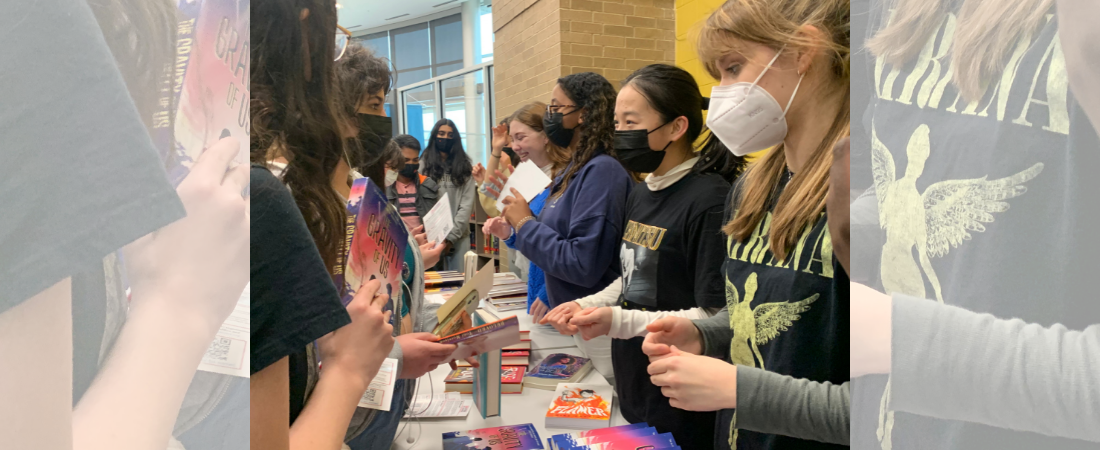When Jerry Craft’s New Kid was banned from school libraries in Katy, Texas earlier this year for “pervasively vulgar” content, I defended his book and advocated against this inexplicable censorship. After that, school board meetings in Texas only intensified.
After months of persistent demands for intellectual freedom being outnumbered by conservatives and drowned out by more book bans, we finally packed the audience of the Katy Independent School District’s February board meeting with students carrying challenged books and sporting pride flags.
This empowering moment was the culmination of KatyISD FReadom Week, a weeklong effort to distribute LGBTQ+ and BIPOC books to more than 170 students across the district. We handed out over 200 books at six high schools, and we mobilized students to address the school board and take tangible actions to combat censorship.
Cinderella is Dead by Kalynn Bayron and Flamer by Mike Curato were among the titles that students received. These works are on Rep. Matt Krause’s list of 850 books that school districts across the state are using to censor their libraries because critics claim they include “pervasively vulgar” content. However, there is no doubt that these books in fact challenge notions of white supremacy and heteronormativity.
The difficult subject matters addressed in these stories impact me in my personal life and cause me to struggle each and every day. It is frustrating to see individual passages taken out of context to deface authors’ literary intent of guiding readers like me to cope with the real challenges we face.
In addition to this perplexing public outcry, these books are not readily accessible in school libraries. Even if they were, parents in the district receive a notification when their child checks out a YA fiction novel. This policy deters students from checking out LGBTQ+ books to seek affirmation and support. For students unaware of the policy, this single notification to parents can have a detrimental impact on their life.
Some books we shared were written by students, such as inside out of my mind by Noa Apple, which is a collection of poems about coping with mental health. In each book, we included a flier with mental health resources as that was a key focus of providing this literature to students.
Having access to affirming content is imperative to supporting the mental health and wellbeing of students. I relied on having access to LGBTQ+ internet content, films, and literature when I was younger and struggling to find myself. These resources are the reason I am standing here today.
We, as students, must take ownership of our education and not let others decide for us what we can and cannot read. Students must be represented in classroom literature so they are encouraged to become their true selves, not to shy away and surrender to what others expect them to be. With the success of KatyISD FReadom Week, I hope students are inspired to take leadership up in their own hands to combat censorship in their community.


